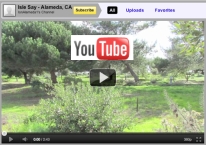The editorial in the Alameda Sun (Council Needs a PIO, Aug. 18, 2011) supporting the recent appointment of a city public information officer (PIO) went one step too far. It advocated for the city council to institute its own public information officer too. While having a PIO might help the media obtain information for news stories, I say let our elected officials speak (or not speak) for themselves.
“The primary responsibility of a PIO is to provide information to the media and public as required by law and according to the standards of their profession,” states Wikipedia. Unlike a public entity, no individual is “required” to provide information. However, part of the job of being an elected official is to be responsive to one’s constituency. While the city itself, at the behest of the city manager, can speak in one voice, members of the city council often part ways on issues.
It may be frustrating for reporters to try to get feedback from members of our city council, especially when their publication has a deadline—a weekly one, no less. We expect our media to keep us informed, especially about our representatives’ positions on controversial issues. However, in our society, everyone, including elected officials, has the freedom to remain silent. I appreciate it when a publication reports that an official declined to comment or did not respond to an inquiry. That silence alone could be interpreted many ways: as contempt, absence, apathy, fear, etc. If members of our city council opt not to clarify or state their positions, we are left to speculate, which could potentially backfire on the council members. Likewise, newspapers should not have to respond to every issue, gripe, or story idea brought to them.
 It’s bad enough that national and state politicians use prepared, canned responses put together by people who have been employed to sugarcoat everything or say nothing of substance. Must we follow suit and remove all the spontaneity and personalized feedback from our local representatives? I hope not. We don’t need more homogenized information.
It’s bad enough that national and state politicians use prepared, canned responses put together by people who have been employed to sugarcoat everything or say nothing of substance. Must we follow suit and remove all the spontaneity and personalized feedback from our local representatives? I hope not. We don’t need more homogenized information.
There is always room for the press to gather information from people not in positions of authority. Whistle-blowers, cheerleaders, and other sideliners would love to be on a newspaper’s call list. Traditionally such private “sources” have tipped off the press, but it does take time to verify the accuracy of their statements.
The Sun’s recent editorial did raise my curiosity though. Which councilperson asked to spin a story? Why did a councilperson decline to comment? I wish the paper would elaborate, so we can accurately understand. And what is it like for a small newspaper to try to cover the many issues in a city the size of Alameda?
Having a public information officer for the city could turn out to be advantageous for everyone. But having one for our city council could shield us from our representatives. The mayor and city council are better off speaking for themselves or remaining silent if they desire. If they choose not to speak, we will ultimately have to interpret and speak for them.
Originally published in Alameda Sun.

